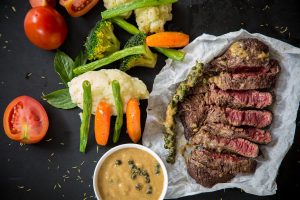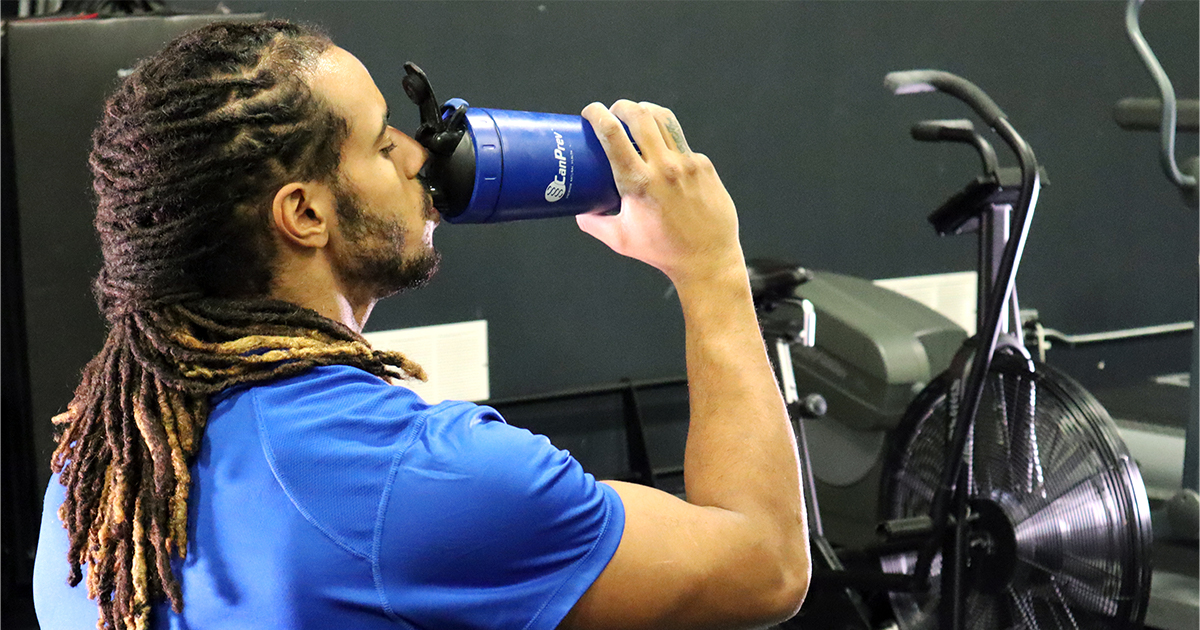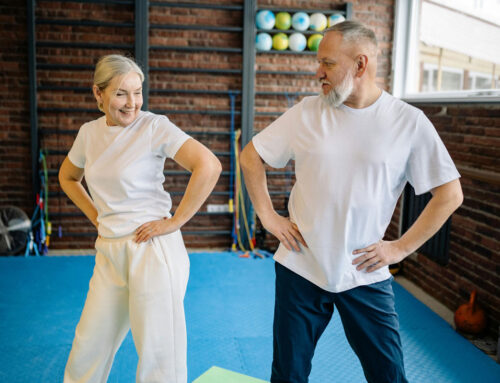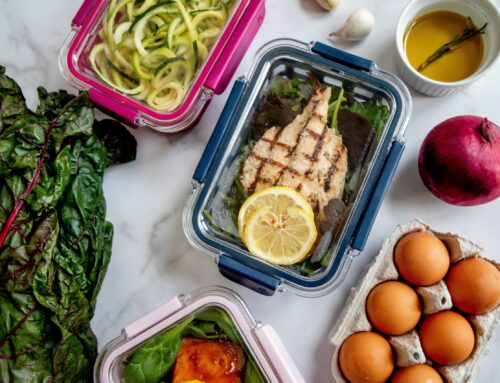Nutrition is a vital component of exercise and athletic performance. To maximize the benefits from this relationship, some may consider factors such as calories per gram, genetic advantage or predisposition, quality of nutrient absorbed through food, and even consuming at certain times of the day in conjunction with scheduled exercise or training.
Known as nutrient timing, how does ingesting whole, nutritious foods before, during and after bouts of exercise or training affect one’s performance in relation to energy and recovery? Let’s dive into the effects of individualized macronutrient measurements and lifestyle considerations in order to maximize exercise performance.
What is nutrient timing?
Nutrient timing involves the purposeful ingestion of all types of nutrients at various times throughout the day, with the goal of favourably influencing athletic performance. This is one of the many practices that athletes perform and nutritionists in the sports field recommend, in order to enhance overall performance and recovery.
Nutrients can come from eating whole foods, fortified foods and dietary supplements, and are useful in both short and long-term bouts of exercise and training.
Macronutrients
In addition to specific breakdown of macronutrients, factors to take into consideration consist of the length and intensity of the athlete’s training phase, as well as the environmental conditions. For instance, an athlete competing in a high intensity setting on a hot summer’s day will burn more calories and require more diligent fueling than an athlete on a rest day who’s going for a nice light bike ride in autumn’s cool weather.
Strategically timing macronutrient intake to appropriately match specific times of the training phase may help athletes experience sustained energy, decreased risk of injury, and maximize recovery windows.
Let’s take a look at each macronutrient and its correlation to an athlete’s needs during training and competition:
Fueling with Carbohydrates:
Carbohydrates (carbs) are the most efficient fuel for exercise. They are the primary energy source for exercise and are rapidly metabolized by cells. Carbs can be ingested before exercise to provide adequate energy supplies, during to have enough fuel to match the demands of exercise, and afterwards to replenish depleted stores.
The current research from the International Society of Sports Nutrition (ISSN) suggests that our own glycogen stores, which are depleted most by high volume exercise, are maximized by following a high carbohydrate diet (9-12g/kg/day).
Generally speaking, if an athlete is training with less than a four-hour recovery window, the ISSN suggests that more calories are needed (1.2g/kg/h) with a bias towards high glycemic index foods (>70), the use of caffeine (3-8mg/kg), or combining carbs (0.8g/kg/h) with protein (0.2-0.4g/kg/h).
All of this can be kept in mind in combination with individual health needs, digestion, genetics, and even preferred tastes and textures.
When stored energy isn’t enough…
During bouts of extended high intensity exercise (>60 minutes, at >70% VO2max), exercise begins to challenge both an athlete’s fuel supply as well as their hydration status. Research suggests that consuming 40g of carbs (i.e. gels, energy gummies, sports drinks, etc) mixed with 10 fluid ounces of an electrolyte drink every 15 minutes throughout their training session leads to increased performance, improved blood sugar maintenance and glycogen synthesis.
Hydration:
While resistance training, carbohydrate ingestion has been shown to improve blood sugar maintenance, increase muscle glycogen stores during exercise, ameliorate muscle damage and improve both acute and chronic training adaptations.
Dehydration and electrolyte imbalance – Hydration status immediately impacts performance. For cells to produce the energy necessary to train and compete, athletes need to be well-hydrated.
The carbohydrates to consume at high quantity during this carb tolerance period are higher in fiber and lower in simple sugars. Some examples are: beans/legumes, vegetables, grains, and potatoes. These foods are loaded with nutrients which work to promote health, and are lower in calories than their processed relatives.
| Type of Carb | Example | When to eat |
| Fiber-rich | Vegetables, peas, beans, legumes, fruits | Eat often, and anytime of the day |
| Starchy | Sprouted grains, pasta, yams, quinoa, amaranth, oats, long grain rice |
During the 3-4-hour carb tolerance post-exercise |
| Refined | Desserts, fruit juice, processed foods, soda, most sports drinks |
Eat rarely, if ever, only 3-4 hours post-exercise |
Fueling with Protein:
Both total protein intake and properly spaced feeding windows are
important for consideration. By spreading out the intake of protein-rich foods or supplements, we allow the body to digest and utilize protein efficiently to signal muscle protein synthesis (MPS). Research has demonstrated that ingestion of essential amino acids either in their free form or as part of a protein bolus (roughly 20-40g), has been shown to optimally improve MPS. This increase has been seen when ingesting protein immediately, but also up to five hours after intense exercise.
On training days, research suggests that athletes should consume 30-40g of protein prior to sleep. This has been shown to improve metabolic rate and MPS throughout the night. Yes, that means burning more calories, and building more muscle just by sleeping!
Protein can be consumed through whole foods or supplementation. Consider selecting options that offer a variety of benefits, such as CanPrev’s Aquatein Vegan Superprotein. This unique sustainably-sourced, plant-based protein is naturally rich in all nine essential amino acids, phytonutrients, minerals, omega-3 fatty acids and fibre.
Let’s talk about Fat:
Current research does not specify the optimal intake and timing of foods rich in fats for enhancing athletic performance and recovery. And as such, following the Canada’s Food Guide suggested serving of healthy fat at each meal would be the current standard. Some foods to consider would be: halibut, hemp hearts, ground flax seeds, walnuts, mackerel, and sardines.
Recent human studies demonstrate that Omega-3 healthy fats can influence the metabolic response of skeletal muscle, and the functional response for a bout of exercise. This means that in addition to their anti-inflammatory and antioxidant effects, omega-3 fatty acid intake has been shown to provide substantial health and performance improvements, especially in those who practice physical activity.
There are many examples of how omega-3s are beneficial to the human body; however, the most important effects are seen through a reduction of the body’s overall inflammatory load and cardiac risk factors.
Note however, that intake depends on the athlete’s goals and training state. Higher or ultra-endurance athletes will need a higher total percentage of fat in their diet. That’s because fats have 9 calories per gram and act as a long-term fuel source. In comparison, carbohydrates have 4 calories per gram, are typically considered the body’s primary fuel source and tend to be burned up quite quickly.
Lifestyle Considerations
Particularly for athletes, ensuring the consumption of essential nutrients throughout intense bouts of exercise is important to maintain health and performance. Additionally though, other factors which also play crucial roles include:
Stress: If stress and recovery are not balanced, athletes will be at an increased likelihood for overtraining, injuries and illnesses.
Sleep: Quality and quantity cannot be more stressed in terms of recovery and performance. Athletes recover most overnight when the growth hormone is released. Growth hormone is responsible for maintaining, building, and helping us repair healthy tissue throughout the brain and body. Make sleep a priority.
Alcohol: Although alcohol intake may not affect recovery acutely, chronic post-exercise alcohol ingestion can lead to less muscular adaption, and therefore a decrease in overall performance.
Immune Health: The immune system is dampened after acute bouts of high intensity exercise (similar to effects seen when under psychological stress). Should an athlete be unwell, consider modifications to their exercise plan in order to avoid increasing their susceptibility to illness.
Diets: Specific dietary choices such as keto, vegan, paleo and Mediterranean, can impact energy stores and recovery. The results of applying these diets may vary between individuals, keeping in mind their specific health history and performance or training demands.
The importance of nutrient timing cannot be understated in athletic performance. Apart from macronutrients, minerals and vitamins play a big role in longevity. In order to optimize performance and recovery, consider working with a healthcare professional such as a Naturopathic Doctor or Holistic Nutritionist to evaluate and create a dietary plan that incorporates individualized nutrient needs before, during, and after bouts of exercise.
*** This article is meant to be a summary of recommendations given to athletes according to current research, and not meant to serve as a source of medical advice or nutritional counselling. Readers are always encouraged to consult with a healthcare practitioner when incorporating new changes to their dietary plans.***
References
- Goldstein ER, Ziegenfuss T, Kalman D, et al. International society of sports nutrition position stand: Caffeine and performance. J Int Soc Sports Nutr. 2010;7. doi:10.1186/1550-2783-7-5
- Kerksick CM, Arent S, Schoenfeld BJ, et al. International society of sports nutrition position stand: Nutrient timing. J Int Soc Sports Nutr. 2017;14(1). doi:10.1186/s12970-017-0189-4
- Sawka MN, Burke LM, Eichner ER, Maughan RJ, Montain SJ, Stachenfeld NS. Exercise and fluid replacement. Med Sci Sports Exerc. 2007;39(2):377-390. doi:10.1249/mss.0b013e31802ca597
- Guide to Nutrient Timing: In-depth | HPRC. https://www.hprc-online.org/nutrition/performance-nutrition/guide-nutrient-timing-depth. Accessed December 27, 2019.
- Nutrition and Athletic Performance. Med Sci Sports Exerc. 2016;48(3):543-568. doi:10.1249/MSS.0000000000000852
- Areta JL, Burke LM, Ross ML, et al. Timing and distribution of protein ingestion during prolonged recovery from resistance exercise alters myofibrillar protein synthesis. J Physiol. 2013;591(9):2319-2331. doi:10.1113/jphysiol.2012.244897
- Nutrition for Sport, Exercise and Performance – Edited by Regina Belski, Adrienne Forsyth and Evangeline Mantzioris – 9781760297497 – Allen & Unwin – Australia. Accessed December 30, 2019.
- Schunck M, Oesser S. Specific collagen peptides benefit the biosynthesis of matrix molecules of tendons and ligaments. J Int Soc Sports Nutr. 2013;10(S1):P23. doi:10.1186/1550-2783-10-s1-p23
- Gammone MA, Riccioni G, Parrinello G, D’orazio N. Omega-3 polyunsaturated fatty acids: Benefits and endpoints in sport. Nutrients. 2019;11(1). doi:10.3390/nu11010046
- Axelrod L, Camuso J, Williams E, Kleinman K, Briones E, Schoenfeld D. Effects of a small quantity of ω-3 fatty acids on cardiovascular risk factors in NIDDM: A randomized, prospective, double-blind, controlled study. Diabetes Care. 1994;17(1):37-44. doi:10.2337/diacare.17.1.37
- Wei MY, Jacobson TA. Effects of eicosapentaenoic acid versus docosahexaenoic acid on serum lipids: A systematic review and meta-analysis. Curr Atheroscler Rep. 2011;13(6):474-483. doi:10.1007/s11883-011-0210-3
- Kellmann M, Bosquet L, Coutts AJ. Recovery and Performance in Sport: Consensus Statement. 2018. doi:10.1123/ijspp.2017-0759
- Pitchford N, Bishop D, Bartlett J. Resting to recover: Influence of sleep extension on recovery following high-intensity exercise. 2017;.:.
- Vingren JL, Koziris LP, Gordon SE, Kraemer WJ, Turner RT, Westerlind KC. Chronic Alcohol Intake, Resistance Training, and Muscle Androgen Receptor Content. Med Sci Sport Exerc. 2005;37(11):1842-1848. doi:10.1249/01.mss.0000176679.80555.cd
- McLeay Y, Stannard SR, Mundel T, Foskett A, Barnes M. Effect of alcohol consumption on recovery from eccentric exercise induced muscle damage in females. Int J Sport Nutr Exerc Metab. 2017;27(2):115-121. doi:10.1123/ijsnem.2016-0171
- Walsh NP. Recommendations to maintain immune health in athletes. Eur J Sport Sci. 2018;18(6):820-831. doi:10.1080/17461391.2018.1449895







Our body is really amazing, I wish this can be easily done but I have learned that you really need a nutritionist’s help to fully know the needs of your athlete